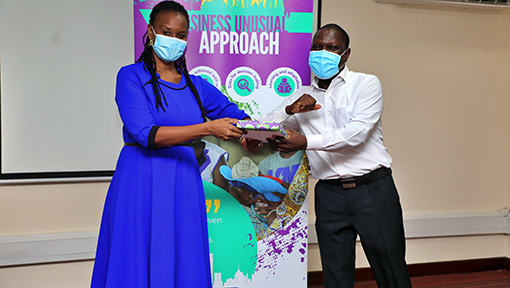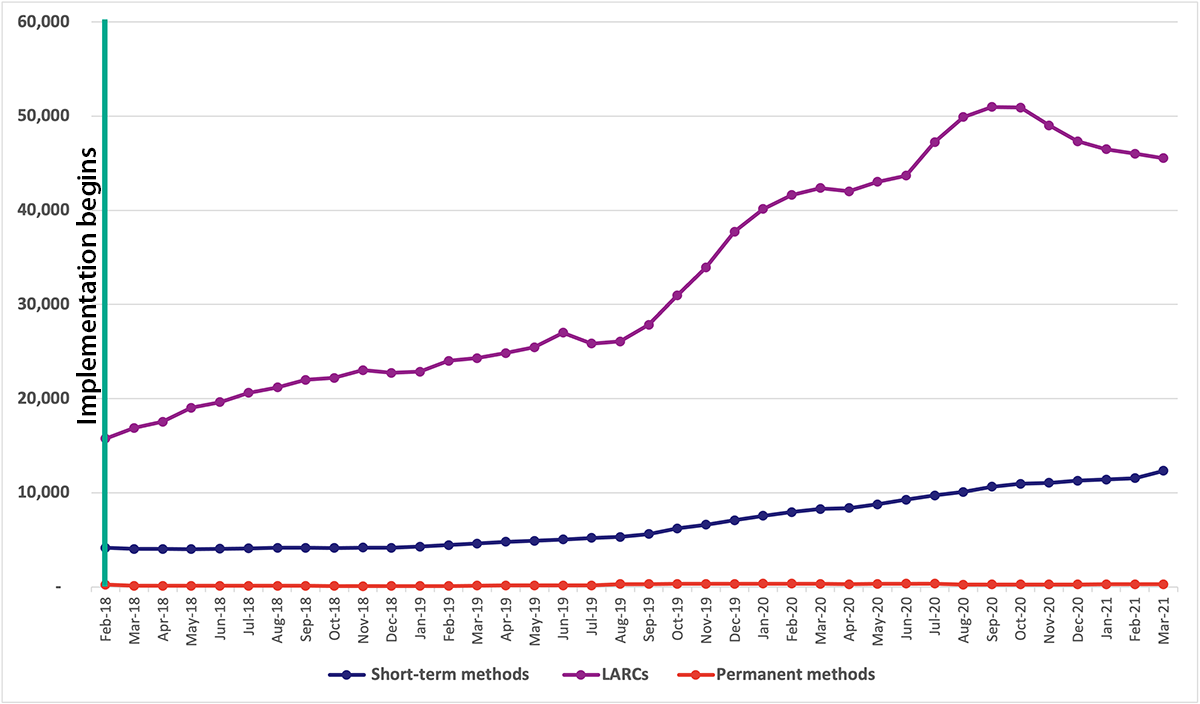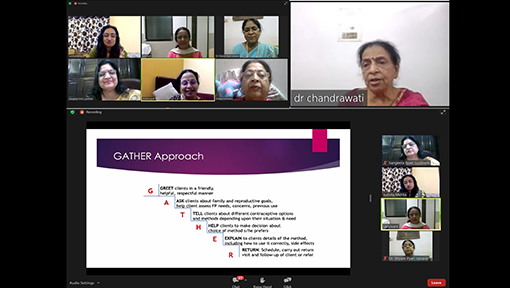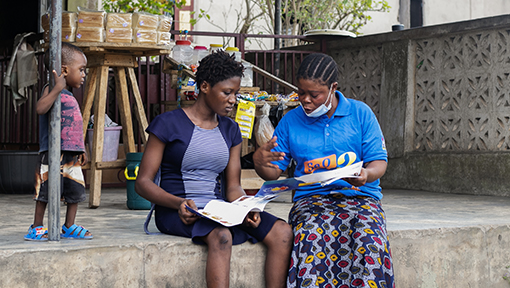Sustaining Local Government-led Family Planning & AYSRH Programming: The East Africa Experience
Contributor: Nancy Aloo

Mombasa County CECM-Health presenting an award to the best performing Master Coach, Shali Mwanyumaba, during a TCI graduation event.
Local governments supported by The Challenge Initiative (TCI) have made tremendous strides to improve their family planning programs in Kenya, Tanzania and Uganda. To date, 22 local governments in East Africa have successfully graduated from TCI and are now on a journey towards self-reliance, leading their own family planning and adolescent and youth sexual and reproductive health (AYSRH) programs without direct TCI support.
TCI’s direct support of a local government typically lasts about three years, with TCI coaching and support tapering off over time as local program implementation teams become increasingly self-reliant in implementing TCI’s high-impact interventions (HIIs). Triangulated data from TCI’s signature RAISE tool and other sources is used to determine a local government’s progress toward self-reliance and determine readiness for “graduation.” Post-graduation, TCI continues to access data and engage the local government to ensure it can sustain its family planning and AYSRH HIIs without direct TCI support, with coaching available “on-demand” only as technical assistance is shifted to other participating cities. TCI and graduated local governments continue to review and use data for decision-making.
TCI hosted a webinar on September 8, 2021, to share some of the strategies four cities – Busia (Uganda), Kericho and Uasin Gishu (Kenya), and Ubungo (Tanzania) – have taken since graduating from TCI’s direct support. The webinar highlighted the local governments’ successes in institutionalizing TCI’s HIIs into workplans, integration of the HIIs in other health area programming, and continued advocacy efforts with city leaders to sensitize their political leaders on the need for financial support and resource allocation for family planning. The graduated local governments are now part of TCI’s “alumni network” and are supporting on-demand coaching activities for newer cities.
Nancy Aloo – TCI’s County Manager for Migori and Nyamira in Kenya – moderated the webinar and started the discussion by providing background of East Africa’s effort towards graduating cities. Aloo was followed by representatives from graduated cities, including:
- Dick Wamaine, a program implementation team (PIT) member for Busia District, Uganda
- Sister Rehema Panga, the Reproductive and Child Health Coordinator at Ubungo Municipal Council, Tanzania
- Assumpta Matekwa, TCI’s County Manager in Vihiga, Kenya
Mr. Wamaine shared:
Before (TCI), there was minimal support for family planning. We did not have a budgetary allocation. With TCI, we were able to do a lot of advocacy with our leaders and get a budgetary allocation. The mayor even committed to allocate 2% of the district revenue allocation. When we were working on our strategic plan, we also realized that family planning was a critical area that we needed to address especially on human capital development to offer those services.”
In Tanzania, those learnings included adoption of the family planning interventions within municipal workplans. According to Ms. Panga, advocacy efforts with city leadership have led to increased allocation towards family planning programs with notable increases in client uptake of various services offered within their facilities, including a 269% increase in family planning client volume since TCI began implementation in February 2018 to March 2021, when Ubungo graduated. This translated to 42,400 additional users.

Ubungo, Tanzania, saw a 269% increase in family planning client volume since TCI began implementation in February 2018.
Mrs. Matekwa reported similar achievements for Kericho and Uasin Gishu in Kenya. She shared the following quotes from government stakeholders, leading their family planning programs without TCI direct support. Emily Cheres, the Reproductive Health Coordinator (RHC) of Kericho county, explained how it is possible to continue without TCI:
We have incorporated what we used to do with TCI in our annual work plans, including in-reaches, outreaches, whole site orientation, onsite mentorship and applying some of these approaches in other health programs.”
Evelyn Rotich, County Executive Member of Health of Uasin Gishu said:
We are happy to be on graduation. This is an achievement. As management, we appreciate the work done in FP/AYSRH. We have not reached where we are supposed to be but we have started the journey – it is our mandate to ensure sustainability…….even though we have improved; we need to interrogate the data to ensure continuous improvement….. the County leadership is there to provide support.”
Check out the recording below to hear more from local family planning leaders in East Africa about their experiences with graduation.






